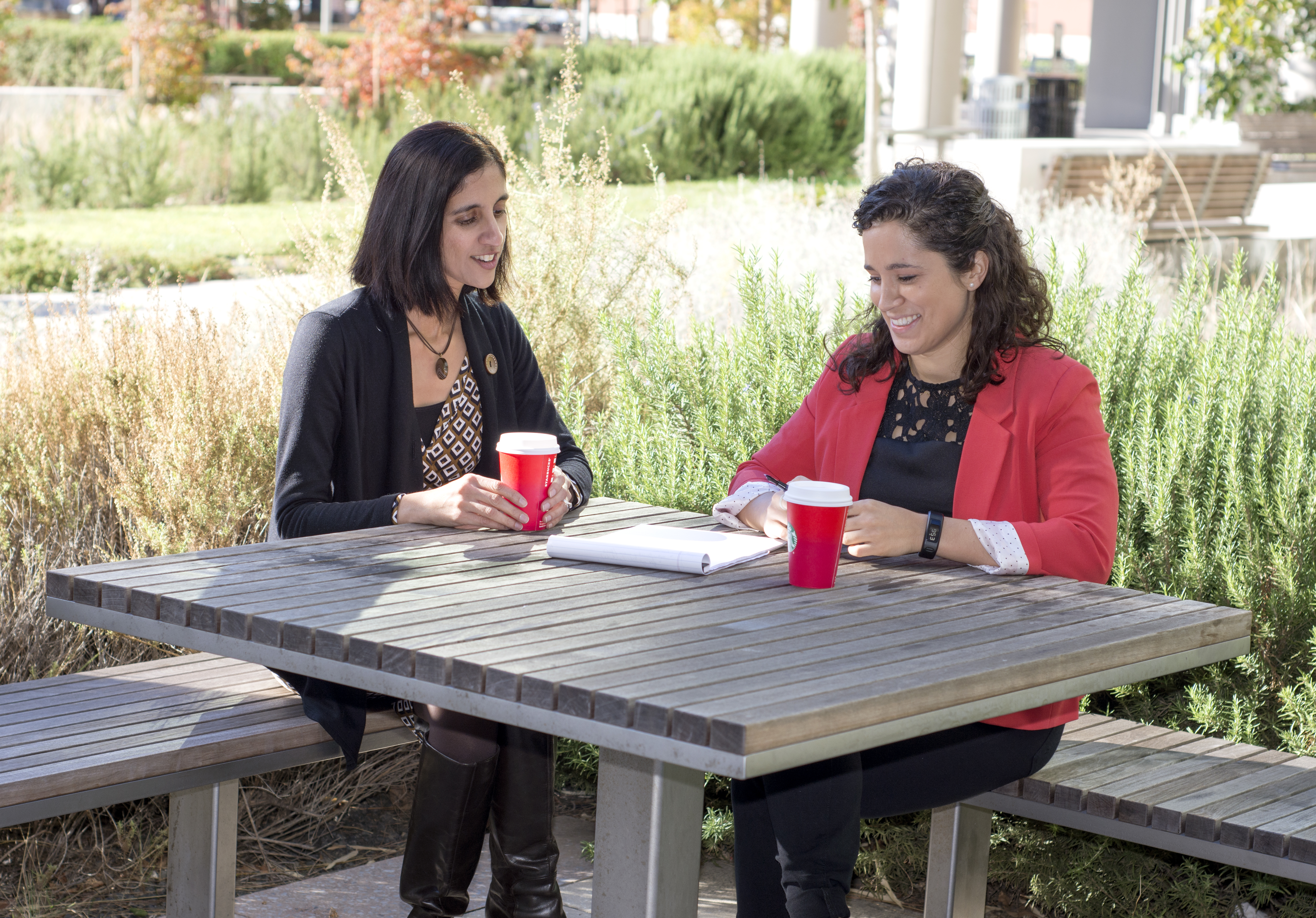Interview with Crystal Nyitray
Interview with Tejal Desai
Interview with Crystal Nyitray, UCSF CCB Program Graduate '15, Entrepreneurship Program Manager at QB3
What do you do?
I’m the entrepreneurship manager for QB3 at UCSF. Basically, I help entrepreneurs launch their startups. My responsibilities include letting people who are starting companies know about financial and legal resources, how to put together grants, and connecting them with people within the community. For example, I will connect a new company with a legal firm that gives guidance pro bono—the law firm’s incentive is to get to know the companies and invest in the company’s future.
What steps did your PI take to help you with your career decisions?
Tejal was amazing. I would tell Tejal what I was interested in (whether it was a postdoc in Germany or a NASA fellowship), and Tejal would never say no. She would give me constructive feedback, dig up her contacts, and help me make it work. She had such an open mind, she was on board all the time. Tejal really instilled confidence and a feeling of freedom as I thought about my career.
When did you make your decision?
I had a transformative internship at Sanofi in business development. My mentors there were phenomenal, and I really admired their ability to think through science, and their openness and perspective on science. I realized that I’m a glutton for cool science, and that I didn’t necessarily have to do the science to experience it. I loved having high level scientific conversations, and bypassing all the “failures.”
How did that decision evolve? Were there multiple options in play?
My career ideas definitely evolved through graduate school. I tried and learned about many things, such as teaching through SEP, and considered if I wanted to make a career out of it. Ultimately, I wanted to focus on translational science, and I asked myself—how can I do that well? I decided that I wanted to move away from the bench and work on big picture ideas. I was considering patent law, finance, and venture.
How did your PhD prepare you for your job?
My day-to-day utilizes a lot of the same skills. Market research is very similar to literature review to understand precedents, etc. I have to take a step back and think about the big picture, and not just the details of one experiment, much like I thought about my research project. I still get to be on the cutting edge of science.
What are some challenges of your current job?
I’d say one the biggest challenges is trying to reach as many companies as I want to. It takes a lot of bandwidth to handle all the companies—QB3 has 330 startups. It’s difficult to set up programs that would be useful for all the companies and to bridge the gap between one-on-one interaction and community interactions.
What advice would you give to PhD students thinking about their career choices?
Think about your core values, do lots of informational interviews, and try different things!
Interview with Tejal Desai, Professor at Cellular Molecular Pharmacology Department at UCSF and former advisor of Crystal Nyitray
How and when do you approach the discussion about post-PhD plans with your trainees?
One of the things I like to find out when students or postdocs join the lab is whether they’re interested in other areas like industry or entrepreneurship versus academia. Then, I try to make sure they get some of that exposure during the course of their time in the lab. For me, it helps to have this discussion—when I know something upfront, I can make sure that their project encompasses some of the elements the trainee wants to learn and what will benefit their long-term goals. Ultimately, if your project aligns with what you’re really interested in doing, you’re going to have more passion and enthusiasm for doing it—it’s really a win-win both ways.
Crystal did an internship while at UCSF to explore some of her business interests. How did you two plan for her time away from the lab?
Starting around her third year in the lab, we talked together about the timing of an internship and how it would fit in with the timing with her project and paper. Because we were able to plan early, it ended up being pretty good timing for everyone. In the end, Crystal came back with a fantastic new perspective on how important her research was and how fit into the broader clinical landscape. These things can be difficult for us to see when we’re zeroed in on a given research project but that new perspective can end up being very motivating.
It’s typically viewed as beneficial for a PI to have trainees move successfully into academic appointments, but has it been beneficial for you to have trainees move into other areas of science as well?
Absolutely. Crystal knows intimately what we’re doing in the lab and is actively helping us think about how to move technologies towards that next step into the commercial landscape. While we really want to do that, my lab doesn’t necessarily have the expertise or bandwidth to do this, so having Crystal’s knowledge and help is so valuable. Crystal also makes connections in industry for me now, since she’s so in touch with the business and entrepreneurial communities. It’s really nice!
